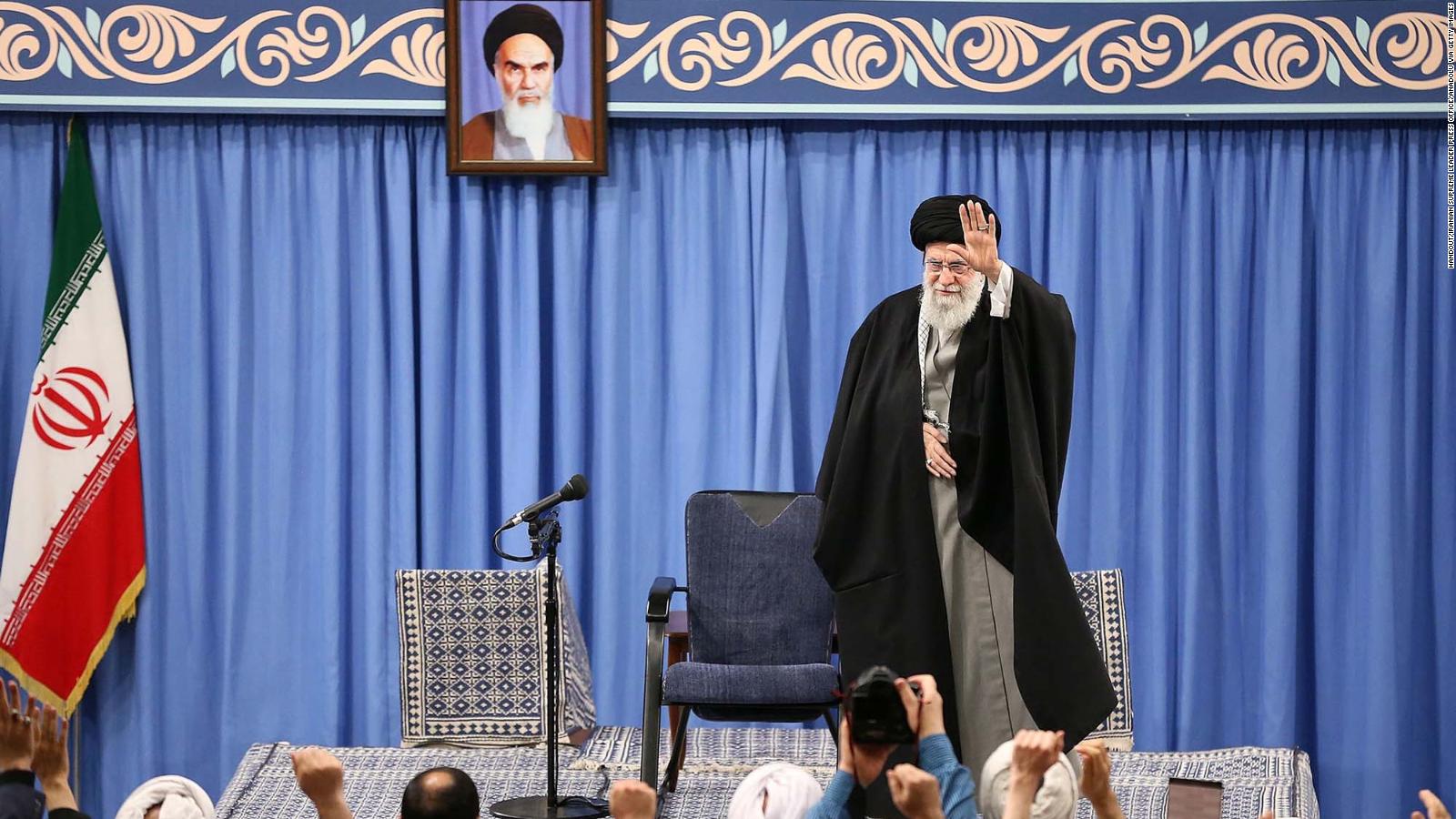What could change in Iran with Ebrahim Raisi in power 2:16
(CNN Spanish) -
In an election without surprises, the ultra-conservative cleric and judicial chief of Iran, Ebrahim Raisi, was elected president on June 18 after the Council of Guardians vetoed the participation of the main reformist and centrist candidates, and he was preparing this Thursday to be formally inaugurated.
But who exactly is Raisi?
Virtually unopposed, Raisi garnered nearly 18 million votes, or about 62% of the total, according to the Iranian state agency IRNA.
Meanwhile, the turnout was 48%, well below the 72% of the last elections and a possible sign of the disenchantment of the electorate.
Although the Iranian authorities maintain that this should be exclusively due to the covid-19 pandemic.
ANALYSIS |
Trump ended dreams of reform in Iran.
The country's new hardline president is the proof
In this way he will replace the moderate Hassan Rouhani, two-time president of Iran who will remain in office until the inauguration of Raisi on August 5.
Raisi, Iran's current judicial chief, focused his campaign on an anti-corruption platform, in an apparent attempt to appease voters' frustrations in the face of an economy in crisis (40% inflation, 11% unemployment and a 6% drop). GDP two years in a row), attributed to US sanctions to curb the Iranian nuclear program.
Ebrahim Raisi, President-elect of Iran.
Raisi is also remembered for his brutal human rights record and his role in repressing the opposition.
advertising
Both the Center for Human Rights of Iran (CHRI), Human Rights Watch and Amnesty International have accused him of being part of a "death committee" that in 1988 would have supervised the execution of thousands of people. .
His two years as president of Iran's Supreme Court were marked by intensifying repression of dissent and human rights abuses, according to the CHRI.
Among the many hard-line measures of his tenure is the first execution in decades of a man for alcohol use.
Raisi, a Muslim cleric who many consider a possible successor to the current Supreme Leader, Ali Khamenei, has not publicly responded to these accusations.
At the beginning of the Islamic Revolution
Raisi was born in 1960 in Mashhad, some 740 kilometers east of Tehran, into a clerical family and received a religious training in the city of Qom, one of the central sites of Shiite Islam.
Iran's Supreme Leader Ayatollah Ali Khamenei.
In the background, above, a portrait of Ruhollah Khomeini, his predecessor.
Raisi came into contact with the ideas of Ruhollah Khomeini, leader of the Islamic Revolution, upon his arrival in Qom in 1975, according to his official biography.
He quickly became a militant in the cause that enacted clergy control over the state, a concept known as "Velāyat-e faqīh", or rule of the Islamic jurist.
The success of the Revolution in 1979 led to the monarch Mohammad Reza Shah Pahlavi into exile and the establishment of a government under this system of Islamic republic, with Khomeini as the first supreme leader.
Raisi, a member of the religious order, also became a prosecutor at the beginning of this new regime and contributed to propping up the government against the opposition.
In 1985 he became deputy attorney general of Tehran from 1985, in the middle of the brutal war with Iraq that lasted between 1980 and 1988
In 1988, the year the war ended, he would have been a member of the "death committee" and a year later he became a Tehran prosecutor, a position he held until 1994.
What will be the future of Iran's nuclear program?
1:22
A long race to the presidency of Iran
Following the rise of Ali Khamenei, the current Supreme Leader after the death of Ruhollah Khomenei in 1989, Raisi continued to advance in his career: he headed the General Inspection Organization between 1994 and 2004, became Attorney General of the Special Clerical Court (2012) and he was deputy chief of justice between 2004 and 2014, during which he contributed to the repression of the 2009 protests after a presidential election marred by allegations of alleged fraud.
His public profile began to grow in 2016 when Raisi became custodian of Imam Alī al-Riḍā's shrine in Mashhad, which meant being in charge of assets worth billions of dollars and one of the largest charitable funds in the world. Iran.
Raisi held this position until 2019, when he was appointed chief justice of the Islamic Republic of Iran, his current occupation.
His political aspirations became clear in 2017, when he gained notoriety competing in presidential elections under his anti-corruption platform.
On this last occasion he was defeated by the moderate Hassan Rouhani, who achieved re-election.
But with the main candidates disqualified by the Guardian Council, and a much lower turnout than in 2017, Raisi apparently had his revenge in 2021.
Ayatollah KhameneiChiitasInstaNews

